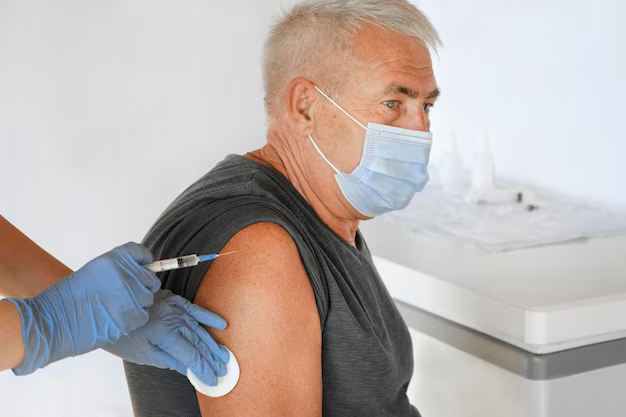Understanding the Shingles Vaccine: How Often Should You Get It?
Imagine enjoying a peaceful day when suddenly, an uncomfortable tingling sensation creeps across your skin, escalating into a painful rash. This scenario can become a reality for many, as shingles, a reactivation of the chickenpox virus, can affect anyone who has had chickenpox. Prevention is key, and that's where the shingles vaccine comes in. But how often does one need it, and who is it for? Let's explore the intricacies of the shingles vaccine, ensuring you have the information needed to safeguard your health.
What is Shingles?
Shingles, also known as herpes zoster, is a viral infection that causes a painful rash. It results from the reactivation of the varicella-zoster virus, the same virus that causes chickenpox. After you recover from chickenpox, the virus remains inactive in your body, hiding in nerve tissues. However, for reasons not fully understood, the virus can reactivate years later, leading to shingles.
Symptoms of Shingles
- Pain, burning, or tingling: Often the first sign of shingles.
- Red rash: Typically develops a few days after the pain.
- Fluid-filled blisters: Break open and then crust over.
- Itchiness: Common alongside the rash.
While shingles can occur anywhere on your body, it often appears as a single stripe of blisters wrapping around the left or right side of your torso.
The Shingles Vaccine: Your Best Defense
Given the painful nature and potential complications associated with shingles, vaccination is the most effective prevention strategy. In recent years, two vaccines have been available to prevent shingles: Zostavax, which is less commonly used now, and Shingrix, the preferred option.
Why Shingrix?
Introduced in 2017, Shingrix is recommended for adults aged 50 and older, as well as adults 19 years and older who have weakened immune systems due to disease or therapy. It offers over 90% effectiveness in preventing shingles, significantly reducing the risk of severe complications.
Benefits of Shingrix
- High efficacy: Over 90% effective in preventing shingles and its complications.
- Long-term protection: Sustained immunity over the years.
- Two doses: Administered 2 to 6 months apart for optimal protection.
Frequency of the Shingles Vaccine
You might wonder, "How often do I need the shingles vaccine?" With Shingrix, the routine is straightforward.
Understanding the Dosage
Shingrix is administered in two doses:
- First dose: At a time of your choosing (but typically recommended once you reach the age of 50).
- Second dose: 2 to 6 months later for comprehensive protection.
Currently, no booster doses are required beyond this two-dose regimen, according to health guidelines.
Shingles Vaccine Eligibility
Who Should Get Vaccinated?
The Centers for Disease Control and Prevention (CDC) recommends the shingles vaccine for:
- Adults aged 50 and older.
- Adults 19 years and older with compromised immune systems.
Special Considerations
Certain individuals should evaluate their options carefully. These include:
- Pregnant individuals: It's best to wait until post-pregnancy.
- Those with severe allergies: Especially to components of the vaccine.
- Individuals with a moderate or severe illness: Wait until recovery.
What to Expect When Getting Vaccinated
Awareness of potential side effects can prepare you for vaccination:
Common Side Effects
- Pain and swelling: At the injection site.
- Fatigue and muscle pain: Typically mild and short-lived.
- Fever: Occasional but usually manageable.
Post-Vaccination Tips
- Stay hydrated: Drink plenty of fluids.
- Rest adequately: Allow your body to recover.
- Over-the-counter relief: Consider pain relievers for comfort.
Why the Shingles Vaccine Matters
Preventing Complications
Shingles may lead to severe complications such as postherpetic neuralgia (PHN), where pain persists long after the rash clears. Vaccination significantly reduces this risk.
Protecting Community Health
Vaccination not only shields individuals but also curbs the spread within communities. By preventing the formation and spread of the varicella-zoster virus, community health is bolstered.
The Cost and Accessibility of Shingrix
Insurance Coverage
Most insurance plans cover the shingles vaccine, notably for those aged 50 and older. It's prudent to confirm coverage details with your provider.
Accessing the Vaccine
- Doctor’s office: Often the first point of contact.
- Pharmacies: Many offer convenient walk-in vaccinations.
- Local clinics: Community health clinics provide vaccination services.
Shingles Vs. Chickenpox: Understanding the Connection
The link between shingles and chickenpox is fundamental. If you’ve ever had chickenpox, reactivation of the varicella-zoster virus could lead to shingles.
The Lifelong Presence of the Virus
After chickenpox, the varicella-zoster virus lies dormant in nerve tissues, potentially reactivating as shingles later in life. Vaccination is crucial for reducing this reactivation risk.
Additional Preventative Measures
While vaccination is paramount, additional steps contribute to overall health:
- Boosting immunity: A healthy lifestyle strengthens immune defenses.
- Managing stress: Chronic stress can weaken immunity, increasing vulnerability.
- Regular health check-ups: Detect potential health issues early.
Empowering Yourself with Knowledge
Understanding the importance and functionality of the shingles vaccine is empowering. By choosing to vaccinate, you protect yourself against potential hardship and contribute to broader public health efforts.
In summary, the shingles vaccine, especially Shingrix, is vital once you hit 50, or earlier if your immune system is compromised. Administered in two simple doses, it offers long-term protection and peace of mind. Stay informed, and protect your future health with timely vaccination.
Key Takeaways:
- 🎯 Shingrix is the recommended shingles vaccine for most adults over 50.
- 📅 Two doses are required, spaced 2 to 6 months apart.
- 🛡️ No regular boosters are needed after the initial two doses.
- 🏥 Consider vaccination sooner if you have a weakened immune system.
- 🌍 Widespread vaccination helps in maintaining community health.

